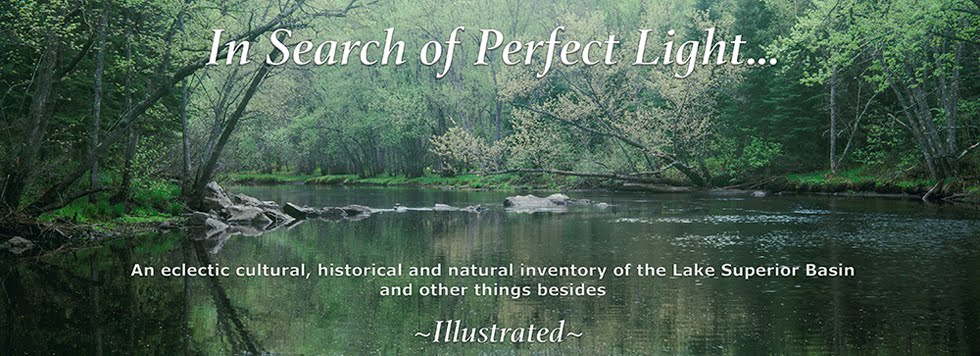During the dark of night, south of Grand Marais I turned west along the forested section of the Adams Trail.
By the time I arrived on the open plains, from a stand of scrub pine a bird already broke the silence with a tune I didn’t recognize. Its solitary voice was bright, melodic and notably insistent.
I am here! I am here! I am here!
Over and over again, that bird called beneath the stars. No bird of any kind answered, that I heard.
It might seem lonely out there on the Kingston Plains, especially in the dark. But be assured, you're nothing like alone.
Over and over again, that bird called beneath the stars. No bird of any kind answered, that I heard.
It might seem lonely out there on the Kingston Plains, especially in the dark. But be assured, you're nothing like alone.
Upon first light and a rising crescent moon, wolves sang.
That voice I recognized. Theirs is an ancient race and wolf song goes back to before the beginning of us. So that's in our bones and blood, informing late
night dreams since the collective memory of our still young species began.
We are here! The wolves definitely said that. I heard them.
Always, I imagined. Then -- And we’ll be here after you’re gone, too.
A bit later came a cacophony of frogs. That surprised me. At least in
verdant spring, potholes on the Kingston Plains still hold their water and happily,
that hosts frogs. It’s not at all certain those will outlast us.
Each individual frog among a multitude of frogs sang. Their voices rained around me as if from land, water and sky at once.
Pay attention to meeeeeeee…
Birdsong beguiles. Wolf song thrills. Frogs delight. I was, by
then, all three. And with the sun not yet above the horizon.
As golden light broke on the Plains, coyotes added their voice to the world. They yipped and
yapped in staccato coyote rhythm.
Day is begun, the coyotes
sang.
That morning on the Kingston Plains, perfect light flowed richer for longer than is deserved by any flawed man bent on capturing an ineffable landscape's spirit of place. Bedazzled by cascading moment at every turn, I stalked that light like a madman, taking it for everything I could.
Holy-shit!-Holy-shit!-Holy-shit!
I sang until well after the sun climbed high, when the magic time was passed
and all else fell silent but for a slight breeze.
*
“The place is a mental disturbance…”
Russell McKee
Audubon Magazine,
March 1988
For certain, since the time I first learned what I was looking at, the Kingston Plains has haunted me.
Some dismiss it as barren.
At first glance that’s understandable perhaps, but it isn’t close to true.
Others call it a wasteland. It’s
not exactly that either, unless wasteland can be defined by riotous life.
Often, these plains are referred to simply as a stump cemetery. While
biologically meaningless, that’s fair enough.
Except, then it’s a graveyard of harvested old growth white pine slowly morphing
into a spindly forest of ferns.
I suppose that when you walk this same landscape during the height of
summer, grasshoppers rise in waves before you like sand thrown to the wind.
Ultimately, I see the Kingston Plains as a great gaping wound, inexorably healing into something it should never have been.
And would never have become, given a better, saner world. The hand of man came down hard upon this place, but did not kill it.
Could not kill it. No matter our Herculean effort, later compounded by a hundred years of callous indifference, after we believed these plains were well & truly dead.
The late teacher and poet Patrick O’Neill sang, Death is life.
That I know of, there’s no other easily accessible scar ripped by our perennial ambition into the magnificent emerald necklace draped
around the great Superior Basin where that fact is laid so plain.
Though it might take another hundred, a thousand, ten thousand years or more,
here is proof that life finds a way. Even on blasted ground.
In the end, I suppose that’s what draws me back to the profoundly
damaged, maddeningly complex, yet resolutely rich kingdom of the Kingston Plains.
Pay me no mind, I whispered to the wolves.
I'm just passing through.
















